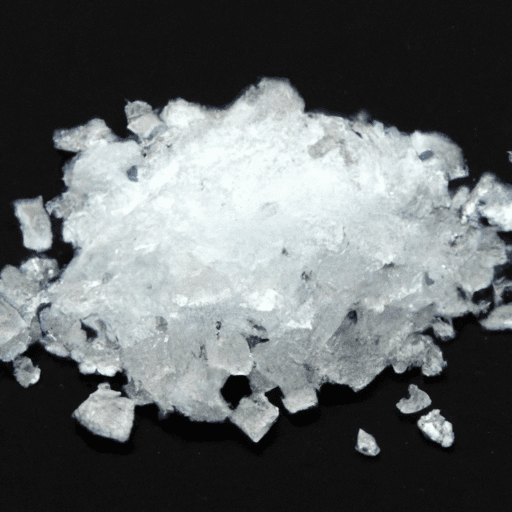Allulose: An Incredible Sweetener Revolutionizing the World of Cooking
In recent years, the food industry has witnessed a surge of interest in alternative sweeteners. As people become more health-conscious and seek ways to reduce their sugar consumption, innovative substitutes are gaining popularity. One such sugar substitute that has captured the attention of health enthusiasts and professional chefs alike is allulose. In this blog post, we will delve into the fascinating world of allulose, exploring its unique characteristics, culinary applications, nutritional value, and some interesting history and facts.
A Sweet Taste with Minimal Calories
Allulose is a monosaccharide, a simple sugar that naturally occurs in small quantities in certain fruits and foods like wheat, figs, and raisins. Though allulose possesses a similar molecular structure to regular sugar, it has a distinct advantage: it contains only a fraction of the calories found in traditional sugar.
But what makes allulose truly remarkable is its taste. Unlike some other alternative sweeteners, allulose closely mimics the flavor of sugar without any bitter or artificial aftertaste. It provides a familiar sweetness that can enhance the taste of your favorite recipes without compromising on flavor.
From Baking to Beverages: Versatile Culinary Applications
Given its delicious taste and versatility, allulose has become a beloved ingredient among home cooks, pastry chefs, and beverage creators. Its unique properties make it an ideal choice for numerous culinary applications. Here are just a few ways to incorporate allulose into your favorite recipes:
1. Baked Goods
When it comes to baking, allulose performs exceptionally well. Its ability to retain moisture means that your cakes, cookies, and breads will stay soft and tender. Moreover, allulose helps create a golden-brown crust that yields a delightful texture. Simply substitute allulose for sugar in recipes at a ratio of 1:1, and you’re well on your way to healthy and toothsome treats.
2. Frozen Desserts
Do you love making frozen desserts? Allulose is the secret ingredient you need to create creamy and smooth results. It inhibits ice crystal formation, resulting in a mouthwatering ice cream and sorbet consistency. No more icy disappointments—just perfectly indulgent and guilt-free frozen treats.
3. Sweetening Beverages
Whether you’re enjoying a cup of coffee or mixing up your favorite cocktail, allulose blends effortlessly and dissolves readily in both hot and cold beverages. It provides a natural sweetness, making it an excellent choice for those seeking to reduce their sugar intake without sacrificing taste.
Nutritional Benefits of Allulose
Beyond its exceptional taste and versatility, allulose offers a range of nutritional benefits. Despite being a sugar, allulose is not metabolized by the body in the same way as regular sugar. It provides only a fraction of the calories and does not significantly impact blood sugar levels. This makes it a valuable ally for individuals managing their blood sugar or weight.
Furthermore, allulose has a low glycemic index, which means it has a minimal effect on blood glucose levels. This makes it a suitable option for those following a low-carb or keto lifestyle.
Fun Facts and History
Here are a few interesting facts about allulose:
- Allulose was first discovered in wheat by a team of researchers in the 1930s.
- While allulose is naturally present in some foods, commercial production allows for a more accessible and affordable supply.
- Due to its resistance to fermentation by yeast, allulose is an excellent choice for diabetics and those following a low-sugar diet.
Concluding Thoughts
Allulose is an incredible sweetener that is revolutionizing the world of cooking. Its familiar taste, low calorie content, and versatility have made it a popular choice for health-conscious individuals and culinary enthusiasts. Whether you’re baking, whipping up frozen treats, or sweetening your favorite beverages, allulose is sure to enhance your recipes without compromising on flavor. Embrace this natural sugar substitute and embark on a journey of healthier and tastier culinary creations.
Note: As with any sweetener, it’s important to use allulose in moderation and consult a healthcare professional if you have specific dietary concerns.
Allulose
Origin: Allulose, also known as D-psicose, is a rare sugar that occurs naturally in small quantities in wheat, figs, raisins, and some other fruits. It was first discovered in the 1940s by researchers studying the metabolism of corn.
Common uses: Allulose has gained popularity as a low-calorie sweetener due to its similar taste to sugar and reduced calorie content. It is used in a variety of food and beverage products including baked goods, confections, ice cream, yogurt, sauces, and beverages. Allulose can also be found in some sugar-free and low-sugar products.
Nutritional benefits: One of the main reasons allulose is used as a sugar substitute is that it provides sweetness with very few calories. While regular sugar contains about 4 calories per gram, allulose only provides about 0.2 calories per gram. Additionally, it does not significantly raise blood sugar levels and has been shown to have minimal impact on insulin. However, it is important to note that allulose is not a significant source of vitamins or minerals.
Unique properties: Unlike other sweeteners, allulose has a similar taste and texture to sugar without the bitter or metallic aftertaste associated with some sugar substitutes. It is about 70% as sweet as sugar, so recipes may require a larger amount of allulose to achieve the same level of sweetness. Allulose also has the ability to lower the freezing point of ice cream, giving it a smoother texture and reducing the formation of ice crystals.
Historical significance: Allulose has gained attention in recent years because of its potential health benefits and its role in sugar reduction strategies. In the United States, the Food and Drug Administration (FDA) considers allulose to be safe for use in food and has exempted it from being included in the total or added sugars on nutrition labeling.




Use the share button below if you liked it.
It makes me smile, when I see it.